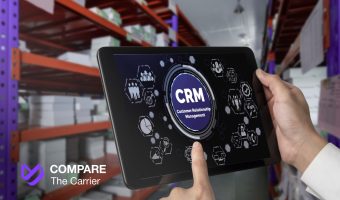Auto transport brokers are the unsung heroes of the logistics world, connecting shippers with carriers to get vehicles where they need to go. But let’s face it, managing leads, quotes, and carrier relationships can feel like herding cats.
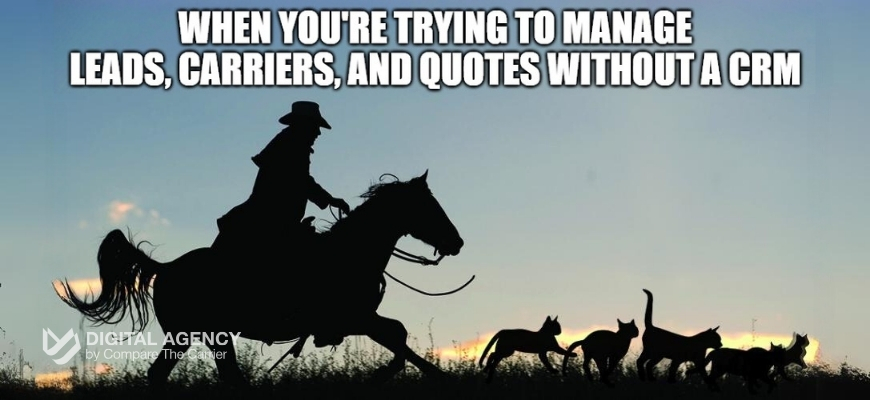
That’s where a Customer Relationship Management (CRM) system swoops in to save the day.
Think of a CRM as your trusty sidekick, helping you wrangle all those moving parts into a well-oiled machine. It’s not just about storing contact info; the best auto transport CRMs streamline your entire operation, from lead capture to invoicing.
At Compare The Carrier Digital Agency, we understand the unique challenges auto transport brokers face. We’ve helped countless businesses find the perfect CRM to supercharge their operations and drive growth.
Leverage advanced digital strategies to further accelerate your brokerage by implementing proven marketing tactics for growth in 2025.
In this guide, we’ll break down the types of CRM software for transportation companies, show how auto transport leads can transform your brokerage’s efficiency and increase conversions the must-have features, and the top contenders in the market. Whether you’re a seasoned pro or just starting out, we’ll help you find the auto transport software that fits your needs and budget.
Types of CRMs for Auto Transport Brokers
When it comes to choosing the right auto transport CRM (Customer Relationship Management) software, auto transport brokers have a few different roads they can take. Each type has its own strengths and weaknesses, so it’s important to understand your specific needs before making a decision.
Let’s break down the three main types of CRM software for transportation companies available to auto transport brokers:
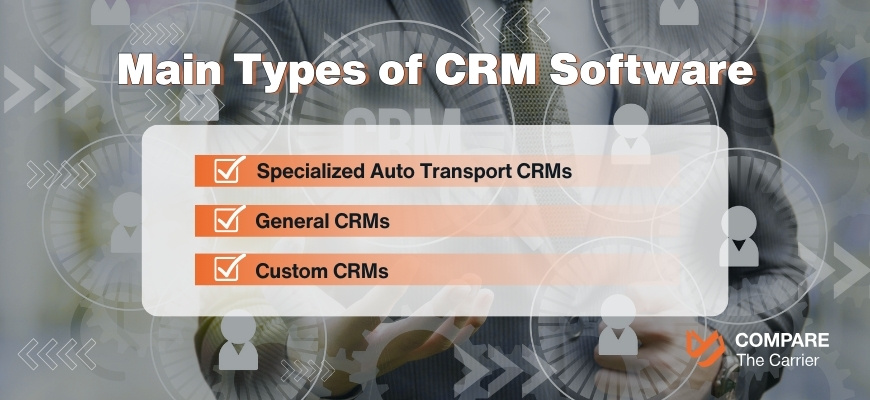
Specialized Auto Transport CRMs
These auto transport software solutions are built specifically for the auto transport industry. They often integrate directly with popular load boards, making it easy to find and manage shipments. For more insights into choosing the best load board for your business, check out this guide on load boards for auto transport brokers.
These CRMs are like a Swiss Army knife for auto transport brokers, offering features like:
Popular examples of specialized auto transport CRMs include:
Pros:
Cons:
With vehicle transport leads from Compare The Carrier, you can ensure your CRM is not only well-equipped but also well-supplied with top-notch prospects.
General CRMs
These are all-purpose CRMs that can be adapted to various industries, including auto transport. They offer a wide range of features and can be customized to fit your specific needs. These CRMs are like a blank canvas that you can paint to match your business.
If you’re looking to supercharge your lead generation and marketing capabilities, consider exploring advanced marketing strategies tailored for brokers.
They offer features like:
Popular examples of general CRMs include:
Pros:
Cons:
Developing Custom CRMs
For larger auto transport brokerages with unique needs, developing a custom CRM can be a viable option. This allows you to tailor the system precisely to your workflows and processes.
For those looking to invest in custom CRMs, it’s essential to build a solid foundation by designing a user-friendly logistics website that integrates smoothly with your CRM.
However, it’s important to weigh the costs and benefits before going down this road.
Pros:
Cons:
The best type of auto transport broker software for your business will depend on your specific needs, budget, and technical capabilities. If you’re a smaller brokerage or just starting out, a specialized CRM connected to load boards might be the most cost-effective and efficient option. If you have more complex needs or a larger team, a general CRM or a custom solution might be a better fit.
For larger brokerages considering a custom solution, Compare The Carrier offers expert consultation to help you build and implement a custom CRM system tailored to your specific workflows.
No matter which path you choose, it’s important to select a CRM that integrates seamlessly with your other auto transport software and systems. This will ensure that your data is centralized and accessible, and that you can streamline your workflows from lead generation to shipment delivery.
Top 11 CRM for Auto Transport Brokers in 2025
Choosing the right auto transport CRM is critical for brokers looking to streamline operations, manage leads, and stay competitive in the transportation industry. With a variety of options available, from specialized auto transport broker software to general CRM systems, finding the perfect fit can feel overwhelming.
Here’s a breakdown of the top 11 CRMs for auto transport brokers, based on popularity among our partners and the unique features each CRM offers, including pricing and key features.

BATS CRM
BATS CRM is one of the top choices among auto transport brokers. Its integration with Central Dispatch makes it a standout for vehicle transport, and it also supports freight services. This dual functionality makes BATS CRM versatile for brokers managing multiple types of shipments. BATS CRM’s advanced email and SMS tools are perfect for brokers looking to combine their CRM with advanced PPC strategies for logistics.

MessagePlane CRM
MessagePlane CRM is known for its simplicity and ease of use. Its clean interface makes it easy for brokers to manage leads and shipments, and setting up a demo is straightforward. Additionally, they can develop integrations with third-party software if it has an API, making it a flexible choice for brokers with unique needs.
To jumpstart your CRM with high-quality leads, visit our auto transport leads page.
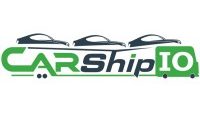
CarShipIO
CarShipIO offers CRM, TMS, and Loadboard all in one integrated, easy-to-use platform at a similar rate the competitors charge for CRM alone. It has an integration with Central Dispatch while featuring its own load board and private carrier network. Ideal for brokers or carriers seeking mobile‑capable quoting, management, and documentation without bouncing between systems — perfectly aligned with the auto‑transport niche.

Cronetic CRM
Cronetic CRM offers seamless load board integration, particularly with Central Dispatch. It’s designed specifically for auto transport brokers and excels in shipment tracking and customer relationship management.

ProABD CRM
ProABD CRM provides a simple solution for brokers looking to manage leads, quotes, and dispatch operations without the complexity of larger platforms. This CRM is ideal for smaller brokerages that need a streamlined, affordable option.
HubSpot CRM
While not specific to the auto transport industry, HubSpot CRM is highly customizable and offers powerful marketing and lead management capabilities. It’s ideal for brokers looking to scale, though the more advanced features are only available on higher-tier plans.
It offers automation, email marketing, and robust lead management. If maximizing lead conversions is your priority, check out how you can turn cold calls into hot leads in 2024 using CRM strategies.
Salesforce
Salesforce is one of the most flexible and scalable CRM platforms available. With extensive customization options, brokers can tailor Salesforce to meet the unique needs of their auto transport business, including integrating with third-party load boards.
Compare The Carrier can help you customize and integrate Salesforce to meet the unique needs of your auto transport brokerage, streamlining operations and marketing efforts.

Zoho CRM
Although Zoho CRM isn’t designed exclusively for auto transport brokers, it offers a flexible and affordable platform with plenty of customization options. It’s a great fit for brokers looking to scale their operations without breaking the bank.

Pipedrive CRM
Pipedrive is a CRM that focuses heavily on sales and pipeline management. It’s a solid choice for brokers who want to streamline their lead management process. While not specific to auto transport, it offers integrations that can make it useful for brokers.

Granot CRM
Granot CRM is a specialized solution built for auto transport brokers. It integrates with load boards and includes advanced tools for tracking shipments, managing carriers, and streamlining client communication.

CarrierSoft MegaBee
CarrierSoft’s MegaBee is another specialized CRM for auto transport brokers. It’s designed to help brokers with quoting, carrier management, and load tracking, and integrates with several load boards like Super Dispatch and Central Dispatch.
Each of these CRMs offers unique advantages, from direct load board integrations to powerful marketing automation tools. Whether you choose a specialized auto transport CRM like BATS CRM or a more general platform like HubSpot, it’s crucial to pick a solution that fits your brokerage’s specific needs and budget.
For further assistance, Compare The Carrier can help you evaluate and implement the best CRM software for transportation companies to optimize your lead management and operation.
Ready to supercharge your auto transport operations with high-quality leads? Click the button below to access exclusive vehicle transport leads tailored specifically for auto transport brokers. Start optimizing your lead management process today!
Key Features to Look For in an Auto Transport CRM
Now that you’ve seen the top CRMs for auto transport brokers, let’s dive into the specific features that can make or break your CRM experience.
Choosing the right auto transport CRM isn’t just about picking a type; it’s about finding the one that has the right features to make your life easier and your business more profitable. Here are the key features every auto transport broker should look for in their CRM software:
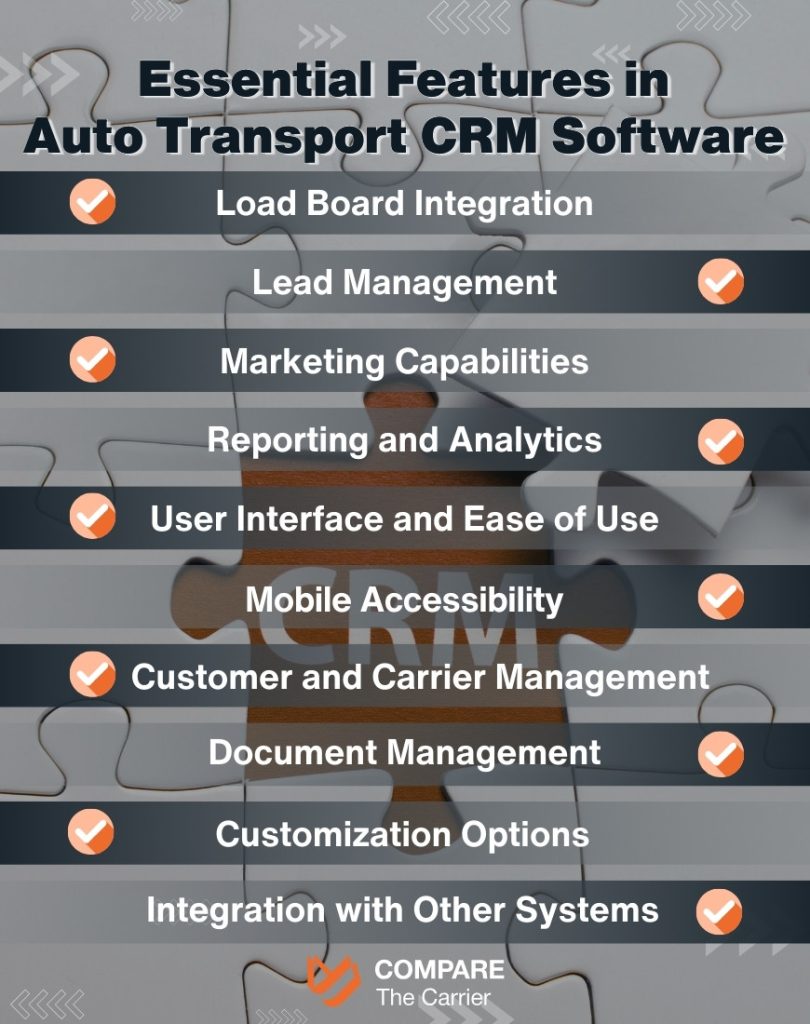
Remember, the right CRM can be a game-changer for your auto transport business. By carefully considering these key features, you can find the auto transport CRM that will help you take your business to the next level.
Best Practices for CRM Implementation
Successfully implementing a CRM for auto transport brokers requires more than just selecting the right software. It involves careful planning, training, and continuous optimization to ensure you’re getting the most out of your investment. Below are some best practices for implementing an auto transport CRM to maximize efficiency and improve your brokerage operations.
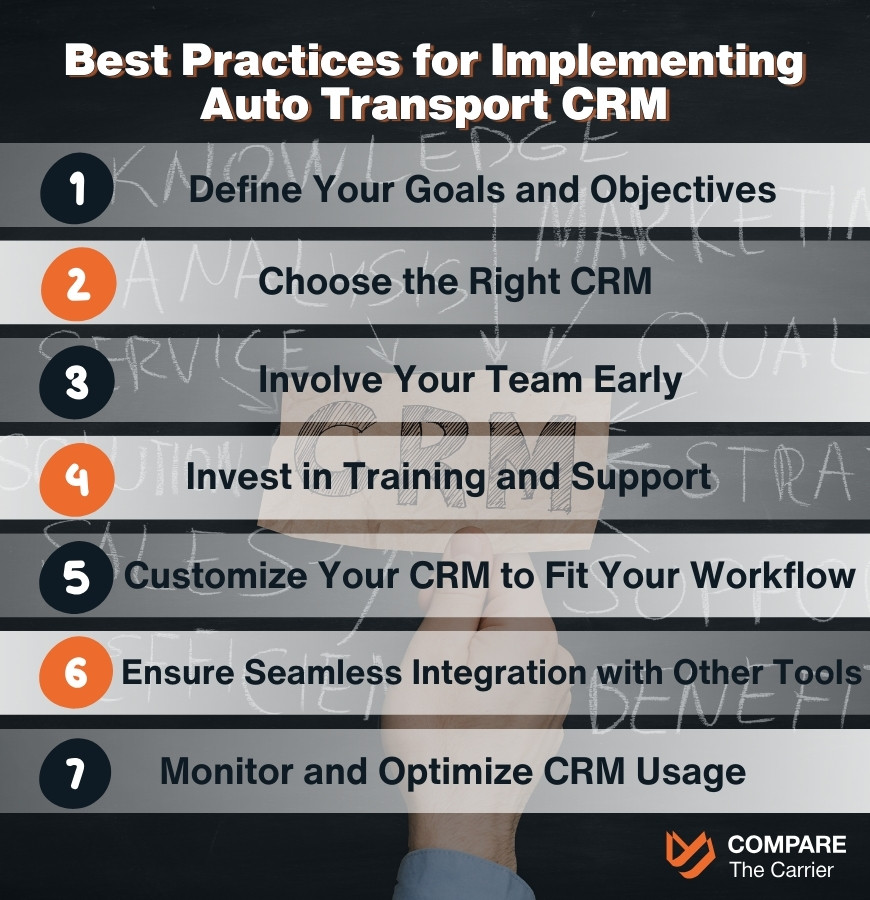
1. Define Your Goals and Objectives
Before you begin the CRM implementation process, it’s essential to outline clear goals. To set the right goals for your CRM, it’s essential to decide whether to focus on buying leads or investing in marketing. Explore more on this topic in our article on lead generation vs. marketing.
Are you looking to streamline your lead management process? Do you want to improve communication with carriers and customers? By identifying your specific objectives, you can customize your CRM software for transportation companies to align with these needs. Clear goals also make it easier to track progress and measure success.
2. Choose the Right CRM for Your Business
The right auto transport CRM should fit your business size, workflow, and budget. If you rely heavily on load boards, a specialized auto transport broker software that integrates seamlessly with platforms like Central Dispatch will save you time and reduce manual data entry. For larger brokerages, a more customizable solution like Salesforce or HubSpot may offer the scalability you need as your business grows. Be sure to test multiple options and choose one that fits your business requirements.
3. Involve Your Team Early in the Process
CRM implementation is a team effort. Involve your employees in the decision-making process from the beginning, especially those who will be using the CRM on a daily basis. This ensures the auto transport software selected meets the practical needs of your team. Early involvement also makes it easier to get buy-in from your team, increasing the likelihood of a smooth transition and strong adoption of the new system.
4. Invest in Training and Support
Even the most user-friendly CRM software for transportation companies can present a learning curve. Comprehensive training for your staff is crucial to making sure they understand the features and functions of the software. This includes teaching them how to use load board integrations, track leads, and manage customer interactions. Some CRM providers offer in-house training, while others provide online tutorials. Ongoing support is also important to handle any issues that may arise post-implementation.
5. Customize Your CRM to Fit Your Workflow
Most CRMs offer customizable features, so take advantage of this to tailor the software to your brokerage’s specific needs. For example, if managing shipments and tracking loads are a priority, configure your dashboard to focus on these tasks. Many auto transport broker software platforms, like ProABD, MessagePlane, and Cronetic, allow users to create custom workflows, fields, and reports that align with their business processes. Customization helps improve efficiency and ensures you’re using the CRM to its full potential.
Need help tailoring your CRM to your brokerage? Check out this list of the top digital agencies for logistics that specialize in CRM implementation and optimization.
6. Ensure Seamless Integration with Other Tools
Your CRM should integrate effortlessly with crucial tools like Central Dispatch for load board management, as well as auto-pricing tools to provide accurate shipment quotes. Additionally, automating customer outreach through built-in SMS and email systems is vital for improving customer engagement. Modern CRMs like Cronetic and BATS CRM offer smooth integration with key systems, ensuring all your data is centralized and accessible in one platform.
7. Monitor and Optimize CRM Usage
After implementation, regularly monitor how your team is using the CRM. Are they fully utilizing the tools available? Are there bottlenecks in the process that need to be addressed? Use the built-in reporting features to track key performance indicators (KPIs) like lead conversion rates, customer satisfaction, and sales pipeline health. Tracking the right shipping KPIs that drive revenue growth will ensure that your CRM continues to provide value to your business. Continuous optimization of your CRM for auto transport brokers is key to long-term success.
Conclusion

Implementing the right auto transport CRM can be a game-changer for brokers looking to streamline their operations, manage leads more effectively, and improve customer relationships. Whether you opt for a specialized auto transport broker software like BATS CRM or a more customizable platform like Salesforce, the key is to choose a system that aligns with your business goals and can grow with your needs.
By following best practices—such as involving your team, customizing the system, and ensuring seamless integrations—you’ll set yourself up for success. A well-implemented CRM software for transportation companies not only saves time and reduces manual tasks but also provides valuable insights that can drive growth.
For more insights on improving your marketing and CRM strategies, check out how to maximize ROI from logistics leads or explore the best online marketing strategies for logistics.
If you’re still unsure about which CRM to choose or how to optimize your system, Compare The Carrier can help. Explore our full range of CRM services, from selection to optimization, and let us guide you to success with the right CRM for your business. Don’t hesitate to reach out to explore how we can help you take your business to the next level with the right auto transport software.
FAQ
Can I integrate my auto transport CRM with my accounting software?
Yes, most auto transport CRMs offer integrations with popular accounting software like QuickBooks or Xero. This allows you to seamlessly sync your financial data and streamline your invoicing and billing processes.
How can a CRM help me improve my marketing efforts?
A CRM with marketing automation capabilities can help you create and execute targeted email campaigns, track the results of your marketing efforts, and even generate leads directly from your website. This can lead to improved lead conversion rates and increased sales.Learn more about the best marketing strategies for logistics in 2025.
Is it necessary to have load board integration in my auto transport CRM?
Load board integration is highly recommended for auto transport brokers, as it allows you to seamlessly find and post loads directly from your CRM. This saves time and improves efficiency by eliminating the need to switch between multiple systems. Here’s our guide to the top load boards for auto transport brokers.
What are the benefits of using a specialized auto transport CRM over a general CRM?
Specialized auto transport CRMs offer industry-specific features and functionality that can streamline your workflows and improve your efficiency. They often include built-in load board integration and other features that are tailored to the needs of auto transport brokers.
How can Compare The Carrier help me choose the right auto transport CRM?
Compare The Carrier has extensive experience in the auto transport industry and can help you assess your needs, compare different CRMs, and choose the best solution for your business. Our CRM consulting services provide full support, from initial evaluation to implementation, training, and ongoing optimization.





